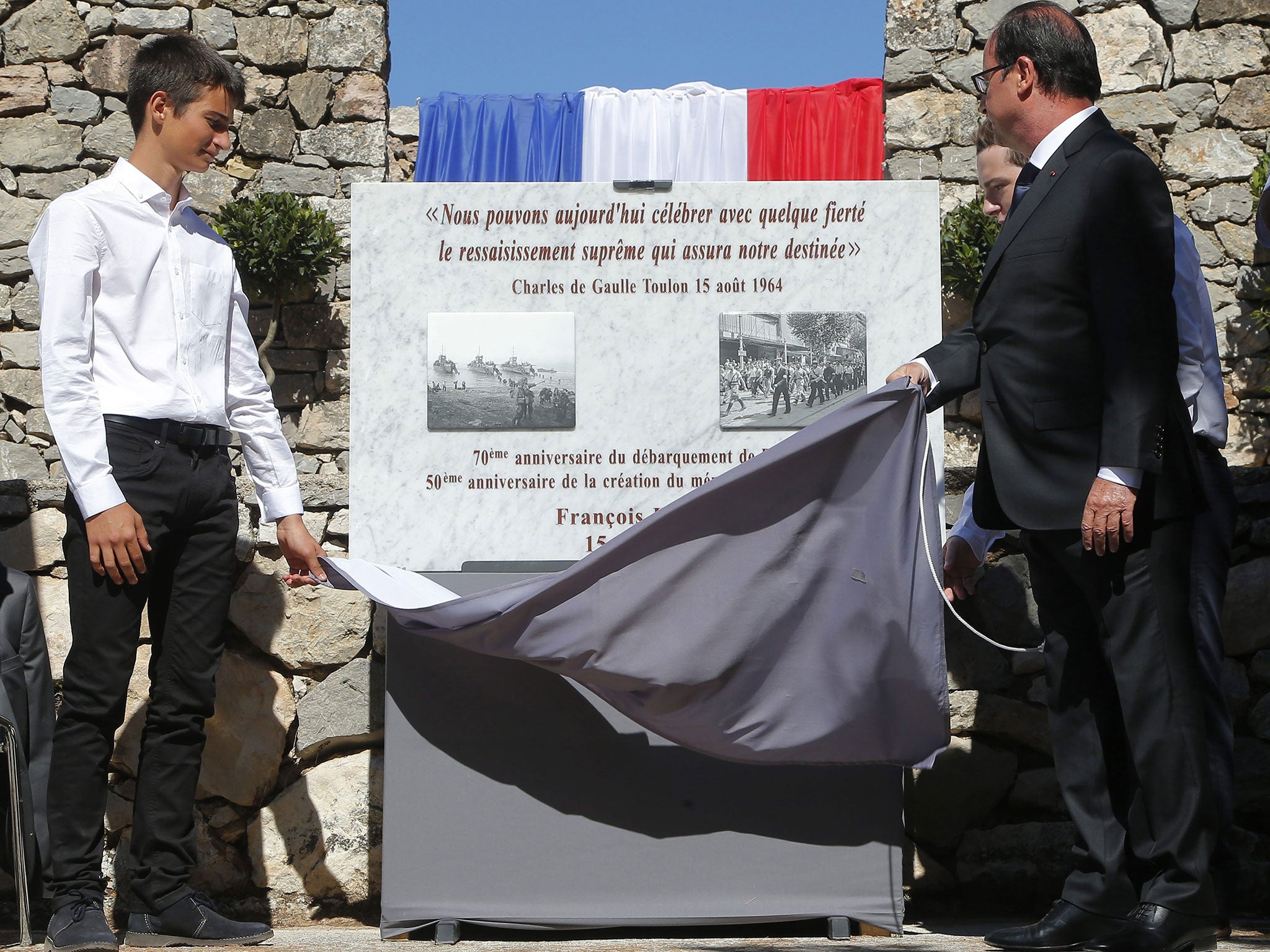The other D-Day: France commemorates ‘forgotten invasion’
Hollande pays tribute to Allied fighters in the lesser-known invasion of Provence in 1944

They call it “the other D-Day”. On Friday, 10 weeks after commemorating the 70th anniversary of the Normandy landings with world leaders, French President François Hollande paid tribute to those who fought to liberate France from Nazi occupation in the lesser-known Allied invasion of Provence on 15 August 1944.
Unlike the Normandy landings, Operation Dragoon, launched in the early hours of 15 August, saw a massive involvement by French soldiers in the invasion, which forced a German retreat and ensured a place for France in the post-war negotiations. A total of 200,000 soldiers – mainly from French colonies in Africa and the Caribbean – made up almost half of the 450,000 troops who took part in the offensive around the ports of Marseilles and Toulon, involving 881 warships.
Speaking at Mont Faron, overlooking Toulon bay, a fortress symbolising the French resistance, Mr Hollande unveiled a plaque to General Charles de Gaulle in the presence of 300 French veterans. The former president and resistance leader had inaugurated the memorial in 1964. With the help of the Allies, “France liberated itself”, Mr Hollande said.
“The battle of Normandy dealt a considerable blow to the Nazis, but the main part still had to be done,” he said. The southern invasion “enabled France to become what it is today”. At the end of the day-long commemorations, Mr Hollande reviewed a naval and airborne parade from the aircraft carrier Charles de Gaulle, in the presence of the leaders of 15 African states.

A flotilla of 20 warships came over the horizon before heading 90 miles along the coast, where the battle had raged 70 years ago, and a spectacular air display was put on by the Patrouille de France, watched by thousands of people. Ships in the parade came from the US, Britain and north Africa.
Operation Dragoon, intended as a pincer movement after Normandy, was launched by American parachute drops followed by an amphibious force of 100,000 US and British troops. The French troops took part in a subsequent wave.
US General Dwight Eisenhower ordered the southern invasion over the objections of Winston Churchill, who favoured an offensive on the Balkans. The US Navy Rear Admiral Don Moon, who was convinced that the German forces would have the upper hand over the Allies, shot himself days before the attack after failing to persuade the overall commander, Vice-Admiral Kent Hewitt, to postpone Operation Dragoon.
In the event, the Germans, weakened by the Normandy invasion, put up little resistance except in the town of St Raphael, where they fought back fiercely. Toulon was liberated on 27 August and Marseilles the next day, and the Germans retreated to the Vosges mountains.
The French military historian Patrick de Gmeline said that although the invasion of southern France was as significant as the Normandy landings, it had been overshadowed by the “American firepower” of Operation Overlord. “It wasn’t secondary, but it came second,” he told BFMTV. Mr Gmeline said it was “not racism”, just the passing of time, which meant that the Provence invasion was less well known, but “now we’re discovering these fighters again who we forgot as time passed”.
Join our commenting forum
Join thought-provoking conversations, follow other Independent readers and see their replies
Comments
Bookmark popover
Removed from bookmarks